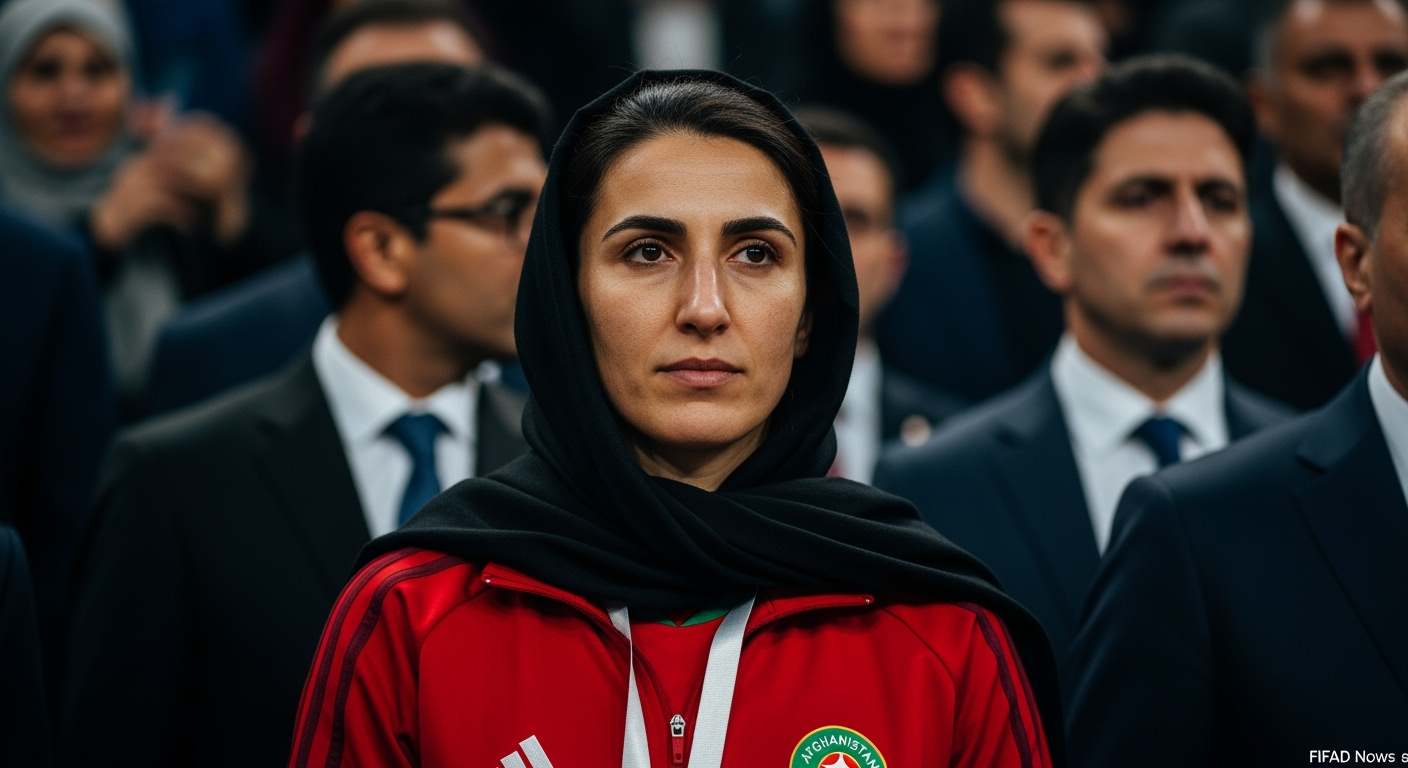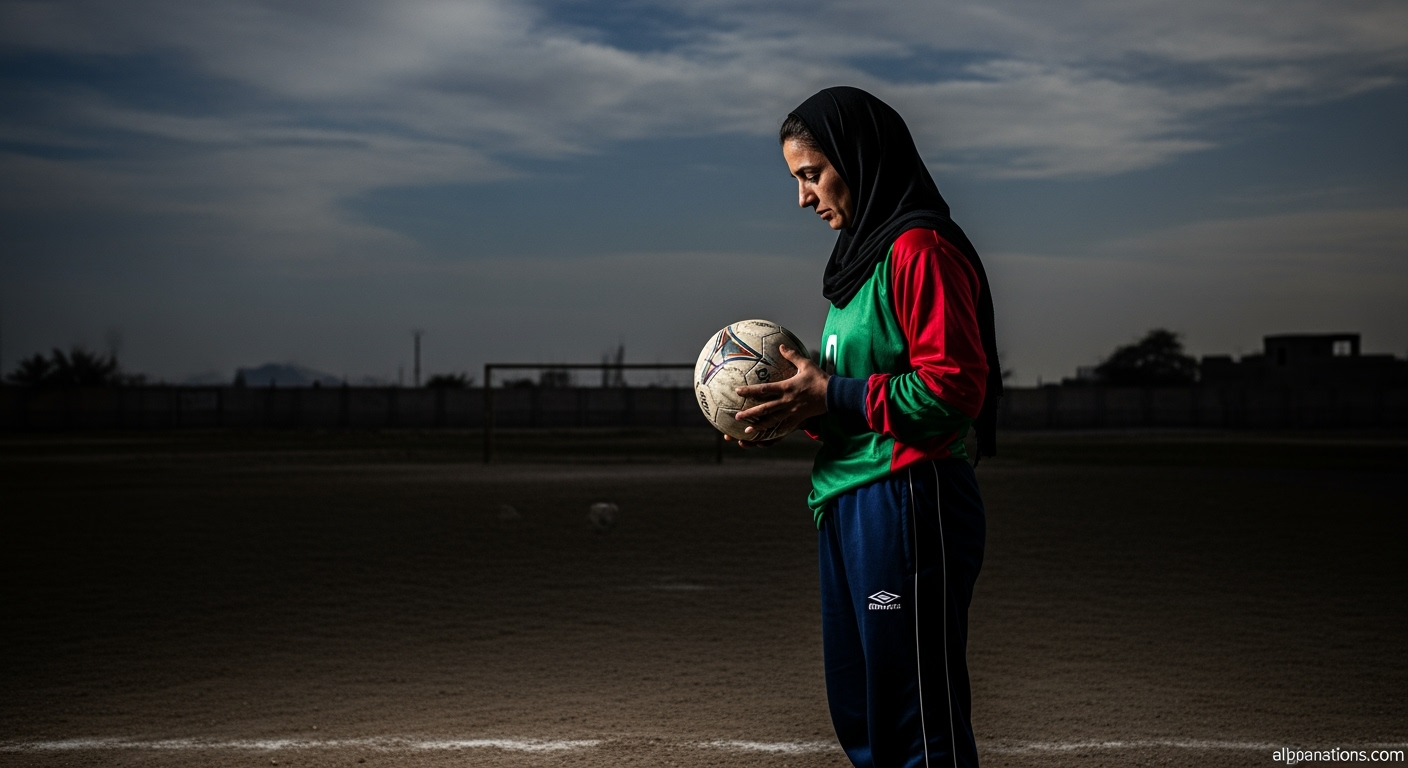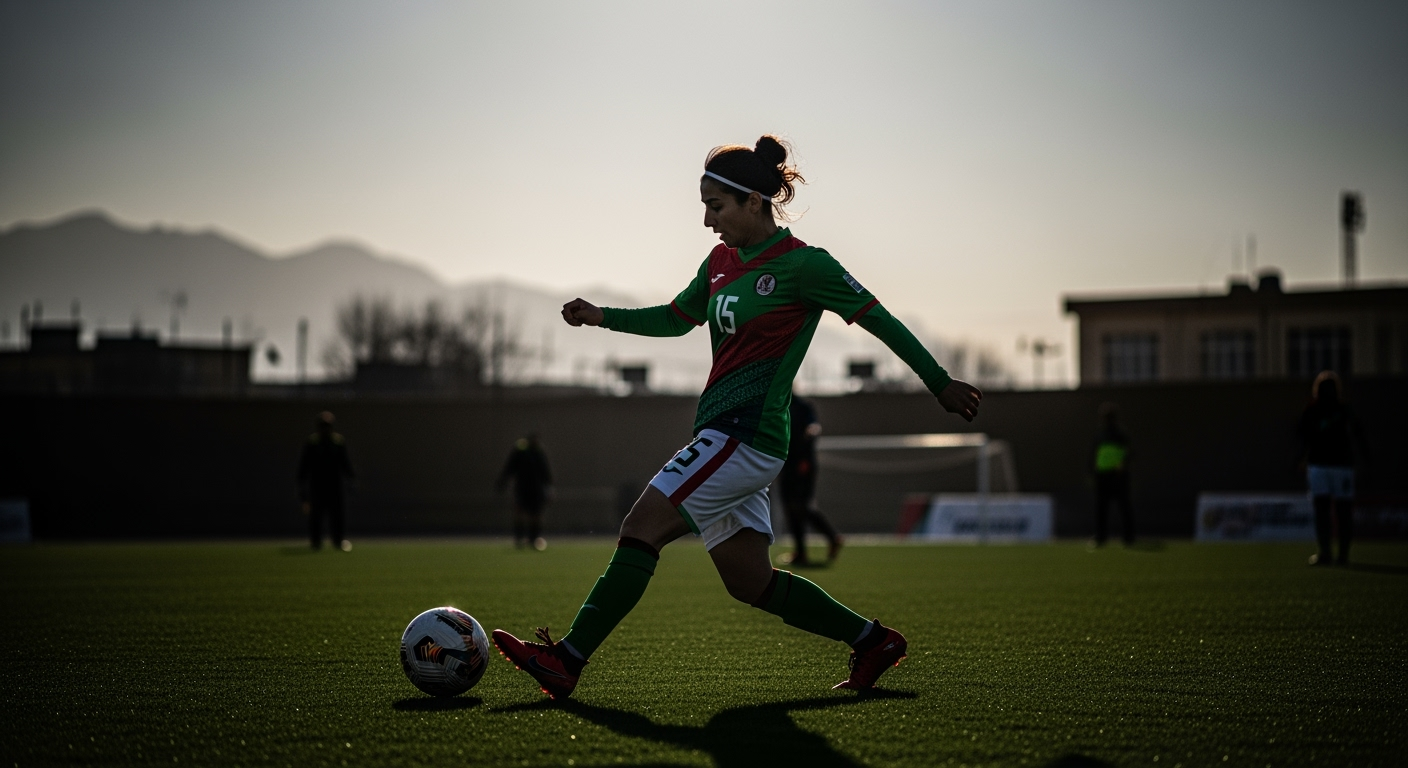Related Articles

The Silent Tear: Unpacking the Impact of Cruciate Ligament Ruptures

Afghan Women's Football Team Forges Historic Path Back to International Arena After Years of Exile





The story of Afghanistan's national women's football team is one marked by both pioneering spirit and profound struggle. From its inception in a nation where women's sports faced deep-seated cultural and political barriers, the team emerged as a powerful symbol of empowerment. However, their trajectory was dramatically altered by geopolitical shifts, particularly the 2021 Taliban takeover, which forced players into exile and placed their very existence in jeopardy. Their journey, punctuated by periods of progress and devastating setbacks, now sees them taking a significant step towards renewed international recognition, albeit as a refugee team, highlighting their unwavering resilience in the face of ongoing challenges.
The Afghanistan women's national football team began its improbable journey in 2007, formed by the Afghanistan National Olympic Committee with players scouted from schoolgirls in Kabul. This initiative laid the groundwork for women's participation in a sport traditionally dominated by men in the conservative nation. Early efforts to build the team's capabilities included preparation camps in Germany in 2008, followed by participation in the Islamic Countries Women's Football Tournament in Jordan, providing crucial international exposure.
A pivotal moment arrived in 2010 when the team made its official international debut at the SAFF Women's Championship in Bangladesh. Despite a significant 13-0 loss to Nepal in their first game, this marked their entry onto the global stage. The team garnered further support and professionalization in 2016, with the Afghanistan Football Federation bringing in new coaching staff, including head coach Kelly Lindsey, assistant coach Haley Carter, and program director Khalida Popal. This period of development saw the team achieve its highest FIFA ranking, reaching 106th globally between December 2017 and March 2018. Yet, even during these years of progress, female athletes in Afghanistan contended with significant societal prejudice and faced severe challenges, underscored by accusations of sexual abuse against the then-president of the Afghanistan Football Federation in 2019.
The hard-won progress of women's football in Afghanistan came to an abrupt halt in August 2021 when the Taliban seized control of the country. This marked a devastating turning point, as the new regime swiftly banned women from participating in sports and nearly all public life. Recognizing the immediate and severe danger to the players, former team captain Khalida Popal, then based in Denmark, issued urgent instructions for team members to delete their social media accounts, erase their public identities, and destroy their football kits to ensure their safety.
An extensive international effort, supported by organizations like FIFPro and governments in Australia, the United States, and the United Kingdom, facilitated the evacuation of many Afghan women athletes, including football players and their families. Images of desperate Afghans attempting to flee Kabul airport became a stark global spectacle. Many players found refuge in countries such as Australia, where they have since continued to advocate for their rights and keep their football dreams alive. Goalkeeper and captain Fatima Yousufi was among those evacuated, finding a new home in Melbourne, Australia.
Following their forced displacement, the exiled players launched a concerted campaign for official recognition from FIFA, football's global governing body. They sought the right to continue representing Afghanistan on the international stage, viewing football as a powerful symbol of strength, resistance, and identity for women whose rights were being systematically eroded back home. However, FIFA's regulations presented a complex hurdle: for a national team to be officially recognized, it typically requires endorsement from the country's national football federation. In Afghanistan, this federation now operates under Taliban control and, consistent with the regime's policies, refuses to recognize women's sports.
This regulatory impasse meant that the Afghan women's national team was excluded from crucial qualifiers for major tournaments, including the AFC Women's Asian Cup and the FIFA Women's World Cup, for consecutive cycles. The players' plight garnered significant international attention and support, with Nobel Peace Prize laureate Malala Yousafzai and human rights organizations like the Sport & Rights Alliance joining their calls for FIFA to intervene. Advocates argued that FIFA's inaction contradicted its own anti-discrimination statutes and enabled the Taliban's gender persecution. The players emphasized that their fight was not just for themselves, but to be a voice for the millions of women and girls in Afghanistan who had been stripped of their freedoms.
In a significant development in May 2025, the FIFA Council approved the formation of an "Afghanistan Women's Refugee Team" (AWRT). This decision was hailed by FIFA President Gianni Infantino as a "historic milestone," affirming the organization's commitment to providing opportunities for girls to play football globally. The AWRT is set to operate under a one-year pilot phase, designed to assess the long-term viability of supporting refugee teams.
While this move represents a crucial step forward, it stops short of granting the team full official national team status, which would enable them to compete in World Cup qualifiers. Nevertheless, the AWRT is now eligible to participate in FIFA-sanctioned competitions. Their first official games are scheduled for October 23-29 in Dubai, as part of the FIFA Unites: Women's Series friendly tournament, where they will face the United Arab Emirates, Chad, and Libya. Pauline Hamill, a former Scottish international, has been appointed as head coach, tasked with guiding the team through identification camps and preparing them for these upcoming matches.
Players and advocates have welcomed FIFA's initiative, acknowledging it as a positive step. However, they continue to express frustration over the pace of change and the lingering challenge of securing full national team recognition. They argue that the partial recognition, while providing a platform, still falls short of truly empowering them to represent their country with the full dignity and opportunity afforded to other national teams.
The journey of the Afghanistan women's national football team is far from over. Their story epitomizes the profound impact of sport as a vehicle for social change and a symbol of resistance against oppression. From their courageous beginnings to their current status as a FIFA-sanctioned refugee team, these athletes have consistently demonstrated an unyielding spirit. While the formation of the AWRT offers a renewed chance for players to compete, the broader fight for full recognition and the inherent right of women to participate in sports within Afghanistan continues. Their enduring presence on the pitch, even in exile, serves as a powerful testament to their determination and an ongoing beacon of hope for women and girls in their homeland and beyond.